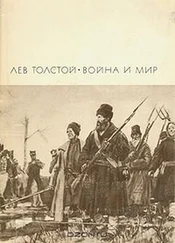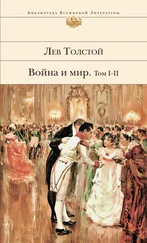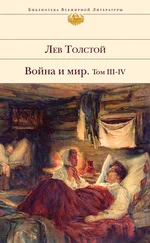| He looked straight at Prince Andrew and suddenly unwrinkled his forehead. |
Он посмотрел прямо на князя Андрея и вдруг спустил собранную кожу со лба. |
| "It is now my turn to ask you 'why?' mon cher," said Bolkonski. "I confess I do not understand: perhaps there are diplomatic subtleties here beyond my feeble intelligence, but I can't make it out. Mack loses a whole army, the Archduke Ferdinand and the Archduke Karl give no signs of life and make blunder after blunder. Kutuzov alone at last gains a real victory, destroying the spell of the invincibility of the French, and the Minister of War does not even care to hear the details." |
- Теперь мой черед спросить вас "отчего", мой милый, - сказал Болконский. - Я вам признаюсь, что не понимаю, может быть, тут есть дипломатические тонкости выше моего слабого ума, но я не понимаю: Мак теряет целую армию, эрцгерцог Фердинанд и эрцгерцог Карл не дают никаких признаков жизни и делают ошибки за ошибками, наконец, один Кутузов одерживает действительную победу, уничтожает charme [очарование] французов, и военный министр не интересуется даже знать подробности. |
| "That's just it, my dear fellow. |
- Именно от этого, мой милый. |
| You see it's hurrah for the Tsar, for Russia, for the Orthodox Greek faith! |
Voyez-vous, mon cher: [Видите ли, мой милый:] ура! за царя, за Русь, за веру! |
| All that is beautiful, but what do we, I mean the Austrian court, care for your victories? |
Tout ?a est bel et bon, [все это прекрасно и хорошо,] но что нам, я говорю - австрийскому двору, за дело до ваших побед? |
| Bring us nice news of a victory by the Archduke Karl or Ferdinand (one archduke's as good as another, as you know) and even if it is only over a fire brigade of Bonaparte's, that will be another story and we'll fire off some cannon! |
Привезите вы нам свое хорошенькое известие о победе эрцгерцога Карла или Фердинанда - un archiduc vaut l'autre, [один эрцгерцог стоит другого,] как вам известно - хоть над ротой пожарной команды Бонапарте, это другое дело, мы прогремим в пушки. |
| But this sort of thing seems done on purpose to vex us. |
А то это, как нарочно, может только дразнить нас. |
| The Archduke Karl does nothing, the Archduke Ferdinand disgraces himself. |
Эрцгерцог Карл ничего не делает, эрцгерцог Фердинанд покрывается позором. |
| You abandon Vienna, give up its defense-as much as to say: 'Heaven is with us, but heaven help you and your capital!' |
Вену вы бросаете, не защищаете больше, comme si vous nous disiez: [как если бы вы нам сказали:] с нами Бог, а Бог с вами, с вашей столицей. |
| The one general whom we all loved, Schmidt, you expose to a bullet, and then you congratulate us on the victory! Admit that more irritating news than yours could not have been conceived. |
Один генерал, которого мы все любили, Шмит: вы его подводите под пулю и поздравляете нас с победой!... Согласитесь, что раздразнительнее того известия, которое вы привозите, нельзя придумать. |
| It's as if it had been done on purpose, on purpose. Besides, suppose you did gain a brilliant victory, if even the Archduke Karl gained a victory, what effect would that have on the general course of events? |
C'est comme un fait expr?s, comme un fait expr?s. [Это как нарочно, как нарочно.] Кроме того, ну, одержи вы точно блестящую победу, одержи победу даже эрцгерцог Карл, что ж бы это переменило в общем ходе дел? |
| It's too late now when Vienna is occupied by the French army!" |
Теперь уж поздно, когда Вена занята французскими войсками. |
| "What? Occupied? |
- Как занята? |
| Vienna occupied?" |
Вена занята? |
| "Not only occupied, but Bonaparte is at Schonbrunn, and the count, our dear Count Vrbna, goes to him for orders." |
- Не только занята, но Бонапарте в Шенбрунне, а граф, наш милый граф Врбна отправляется к нему за приказаниями. |
| After the fatigues and impressions of the journey, his reception, and especially after having dined, Bolkonski felt that he could not take in the full significance of the words he heard. |
Болконский после усталости и впечатлений путешествия, приема и в особенности после обеда чувствовал, что он не понимает всего значения слов, которые он слышал. |
| "Count Lichtenfels was here this morning," Bilibin continued, "and showed me a letter in which the parade of the French in Vienna was fully described: Prince Murat et tout le tremblement... You see that your victory is not a matter for great rejoicing and that you can't be received as a savior." |
- Нынче утром был здесь граф Лихтенфельс, -продолжал Билибин, - и показывал мне письмо, в котором подробно описан парад французов в Вене. Le prince Mur?t et tout le tremblement... [Принц Мюрат и все такое...] Вы видите, что ваша победа не очень-то радостна, и что вы не можете быть приняты как спаситель... |
| "Really I don't care about that, I don't care at all," said Prince Andrew, beginning to understand that his news of the battle before Krems was really of small importance in view of such events as the fall of Austria's capital. "How is it Vienna was taken? |
- Право, для меня всё равно, совершенно всё равно! - сказал князь Андрей, начиная понимать,что известие его о сражении под Кремсом действительно имело мало важности ввиду таких событий, как занятие столицы Австрии. - Как же Вена взята? |
| What of the bridge and its celebrated bridgehead and Prince Auersperg? |
А мост и знаменитый t?te de pont, [мостовое укрепление,] и князь Ауэрсперг? |
| We heard reports that Prince Auersperg was defending Vienna?" he said. |
У нас были слухи, что князь Ауэрсперг защищает Вену, - сказал он. |
| "Prince Auersperg is on this, on our side of the river, and is defending us-doing it very badly, I think, but still he is defending us. |
- Князь Ауэрсперг стоит на этой, на нашей, стороне и защищает нас; я думаю, очень плохо защищает, но всё-таки защищает. |
| But Vienna is on the other side. |
А Вена на той стороне. |
| No, the bridge has not yet been taken and I hope it will not be, for it is mined and orders have been given to blow it up. |
Нет, мост еще не взят и, надеюсь, не будет взят, потому что он минирован, и его велено взорвать. |
| Otherwise we should long ago have been in the mountains of Bohemia, and you and your army would have spent a bad quarter of an hour between two fires." |
В противном случае мы были бы давно в горах Богемии, и вы с вашею армией провели бы дурную четверть часа между двух огней. |
| "But still this does not mean that the campaign is over," said Prince Andrew. |
- Но это всё-таки не значит, чтобы кампания была кончена, - сказал князь Андрей. |
| "Well, I think it is. |
-А я думаю, что кончена. |
| The bigwigs here think so too, but they daren't say so. |
И так думают большие колпаки здесь, но не смеют сказать этого. |
| It will be as I said at the beginning of the campaign, it won't be your skirmishing at Durrenstein, or gunpowder at all, that will decide the matter, but those who devised it," said Bilibin quoting one of his own mots, releasing the wrinkles on his forehead, and pausing. "The only question is what will come of the meeting between the Emperor Alexander and the King of Prussia in Berlin? |
Будет то, что я говорил в начале кампании, что не ваша echauffour?e de D?renstein, [дюренштейнская стычка,] вообще не порох решит дело, а те, кто его выдумали, - сказал Билибин, повторяя одно из своих mots [словечек], распуская кожу на лбу и приостанавливаясь. - Вопрос только в том, что скажет берлинское свидание императора Александра с прусским королем. |



